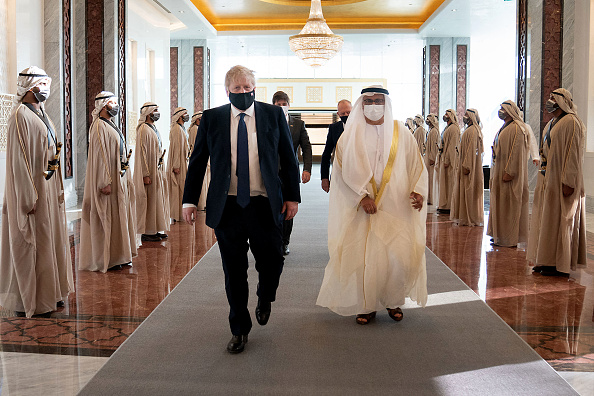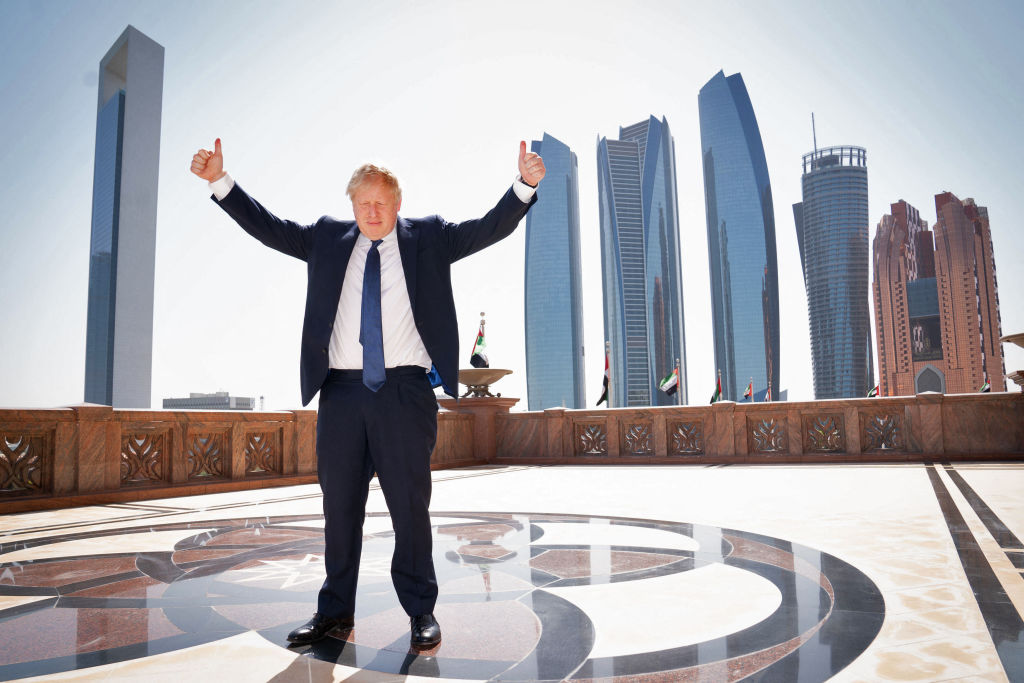Johnson says he will push Saudi Arabia on human rights as he lands in Middle East

Boris Johnson has defended his decision to meet with the Crown Princes of Saudi Arabia and Abu Dhabi today, vowing to bring up their human rights records.
Johnson arrived in the United Arab Emirates this morning and will hold a meeting with Abu Dhabi Crown Prince Mohammed bin Zayed, before travelling to Riyadh to meet Saudi Arabia Crown Prince Mohammed Bin Salman.
The Prime Minister was greeted by a guard of honour on arrival to Abu Dhabi as he walked between two lines of guards armed with swords.
Johnson is visiting the two countries to try and convince them to increase oil production and ease the global surge in energy prices resulting from Russia’s invasion of Ukraine.
He last night said “Saudi Arabia and the United Arab Emirates are key international partners” in the West’s efforts to “wean itself off Russian hydrocarbons and starve Putin’s addiction to oil and gas”.
The Prime Minister moved to assure people that he would bring up the Crown Princes’ human rights records today.
“I’ve raised all those issues many, many times . . . since I was foreign secretary and beyond and I’ll raise them all again today. But we have long, long standing relationships with this part of the world and we need to recognise the very important relationship that we have,” he said.

Sky News reported yesterday that Johnson was also looking to close a multi-billion pound investment deal with the Saudi Arabia regime.
Any investment deal with Saudi Arabia will likely come under heavy scrutiny due to the country’s poor human rights record.
Bin Salman was accused of sanctioning the brutal murder of dissident journalist Jamal Khashoggi in 2018 and last weekend his regime oversaw the execution of 81 people.
Labour leader Sir Keir Starmer accused Johnson of “going cap in hand from dictator to dictator” as a part of his “slapdash” approach to trying to ease the energy crisis.
Johnson defended the trip and the role the Middle East can play in easing energy pressures by pointing to a £1bn investment in a Teeside green aviation plant by Saudi company alfanar.
“That’s the kind of thing we want to encourage. [It] doesn’t in any way mean we can’t stick to our principles and raise those issues that we all care about,” he said.
“It’s not just a question of looking at the Opec countries and what they can do to increase supply, though that is important; there’s also the issue of Emirati investment in UK wind farms, already huge, what more can they do.”